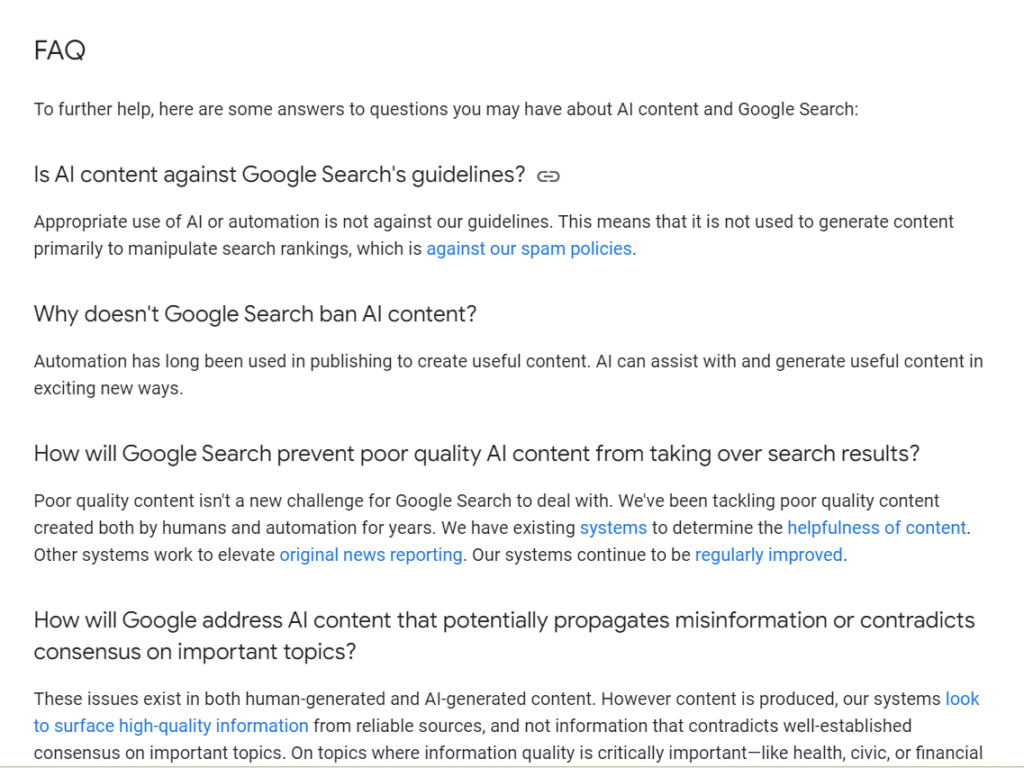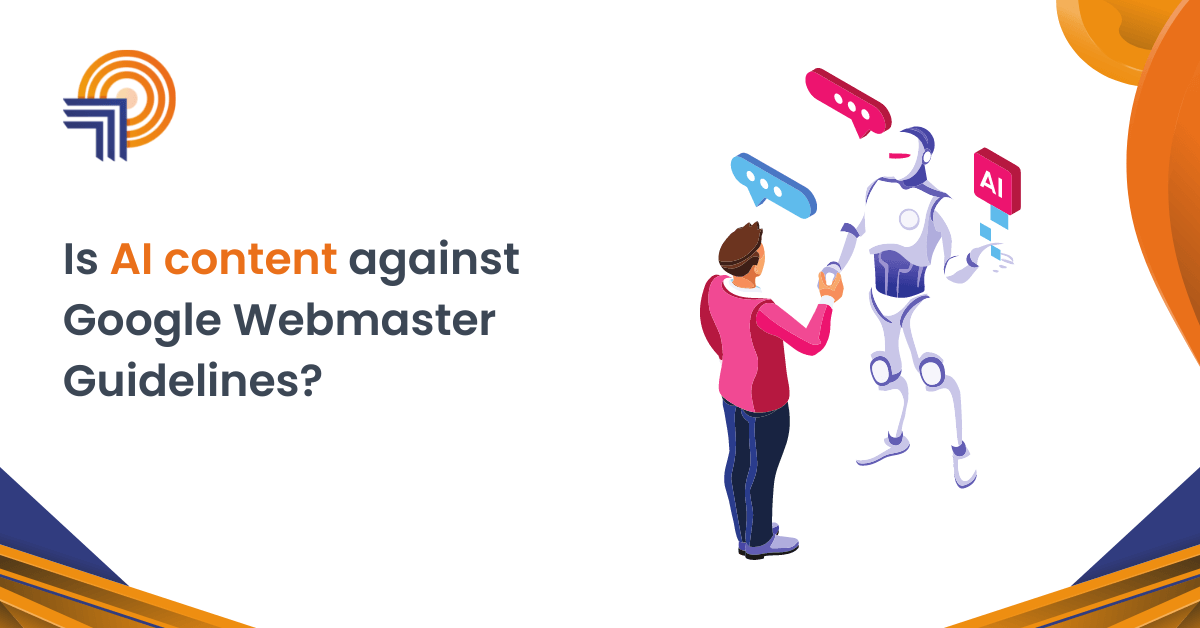Every day more and more technological advancements are happening all across the world to make people’s lives easier. AI, or Artificial Intelligence, has been a well-known and widely discussed concept for a few decades now. Currently, one of the burning topics in the content creation industry is AI generation content and how it can affect a brand’s position on Google’s SERPs.
The rise of AI writers, AI-generated content, and the continuous progress of machine learning has led to a growing prevalence of artificial intelligence in content creation. People may be turning to AI-generated content for various reasons, be it to save some time and money or make their content marketing process a bit easier in the long run.
Google Webmaster Guidelines regarding AI content
With the rise in AI-generated content, one question that has arisen is whether this content goes against the Google Webmaster Guidelines. The direct answer is no, as Google has recently updated its guidelines to clarify its position on AI-generated content. The updated guidelines state that as long as the content is created to benefit people and not solely to improve search engine rankings, it is acceptable.
You can also read: Impact of AI Content vs. Human-Written Content
Is AI-generated content feasible for companies?
If you create content for your company in the form of blogs, articles, website content or even ad campaigns, your primary focus is to gain the attention of your potential customers. Therefore, it requires understanding the pain point of your customers and finding ways and solutions to solve them.
Automatically generated content often lacks coherence as it simply extracts material from the internet and adapts it to the topic. While it may contain the right keywords, the context and flow are often missing, resulting in meaningless content.
Therefore, any content that is posted on a website should be relatable and meaningful to the readers. Furthermore, it is vital that even if the companies are using AI-generated content, there should be a human being to review the content and edit and rewrite it wherever necessary.
The Evolution of Google’s Guidelines
In October 2022, the Google Webmaster Guidelines underwent a revision and were renamed as Google Search Essentials to simplify and streamline the content, providing clear guidance on building websites that cater to people’s needs.
They provide comprehensive guidance on how to create websites that are user-friendly and meet Google’s quality standards. To ensure that your content is not considered AI-generated or spam content by Google’s Webmaster guidelines, here are some things to keep in mind:
- Content that includes search keywords but is incomprehensible to readers
- Text that is translated by automated tools without any human review or curation before publication
- Text created using automated techniques like synonymizing, paraphrasing, or obfuscation
To hear his full response, see the video below:
To further help, here are some answers to questions you may have about AI content and Google Search

Conclusion
Despite its seemingly automated nature, Artificial Intelligence content is beneficial and decreases workload. However, according to Google, content beneficial to the audience should be considered. To make AI content more realistic and to give it a human touch, an editor should assess it. To know the latest Google update follow SEO company in Ahmedabad.
You can also read: What Is Market Segmentation?

